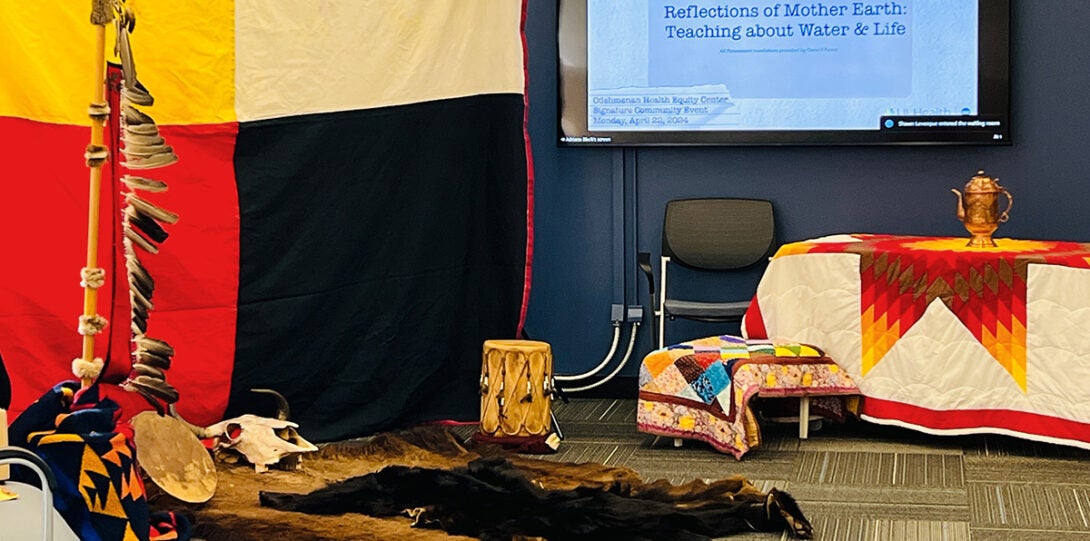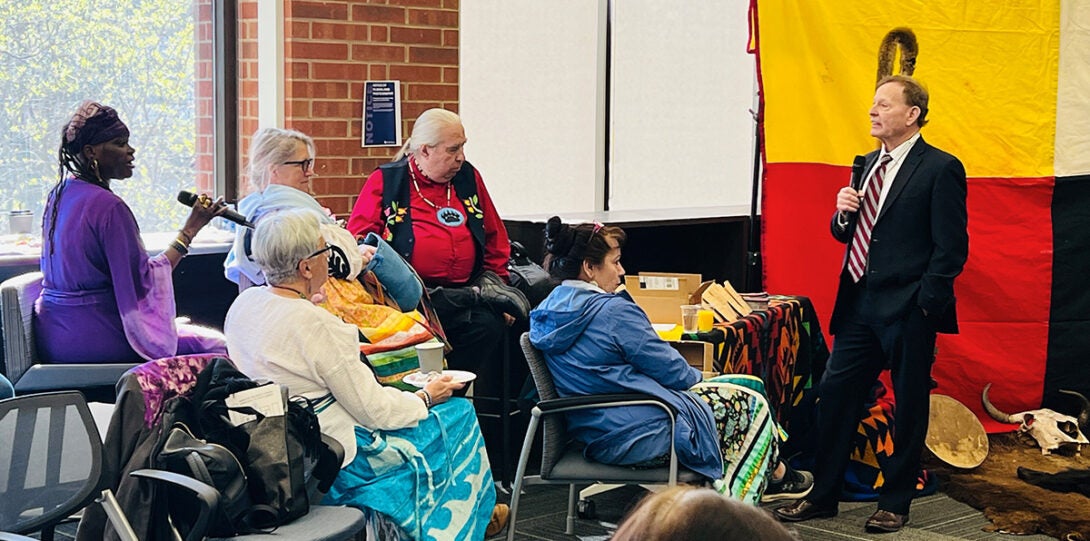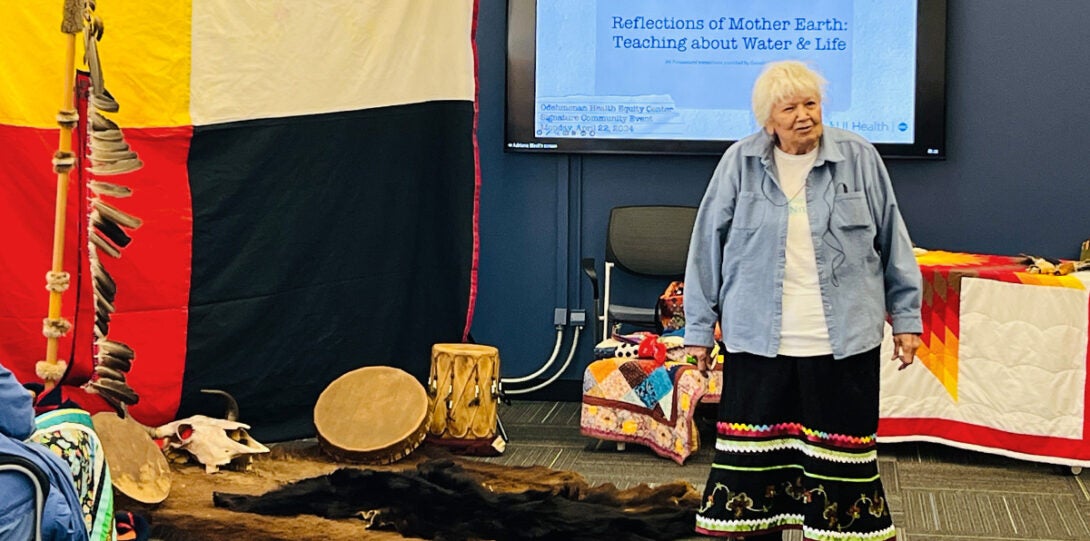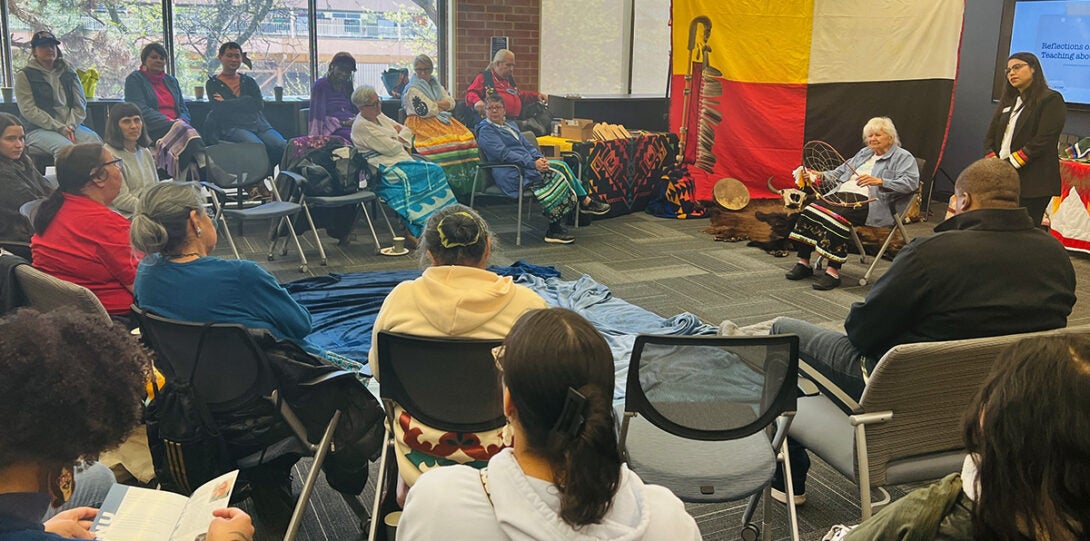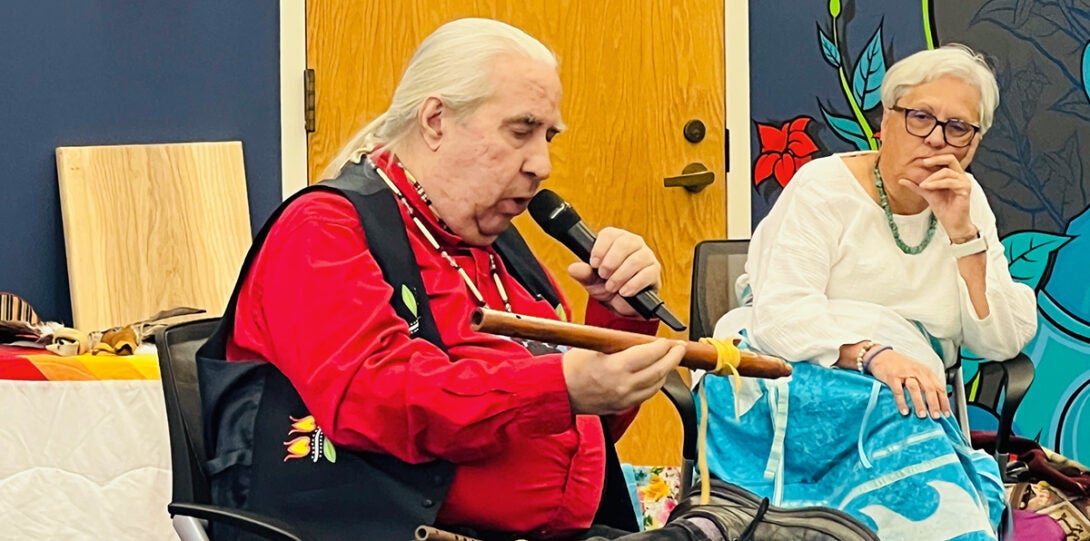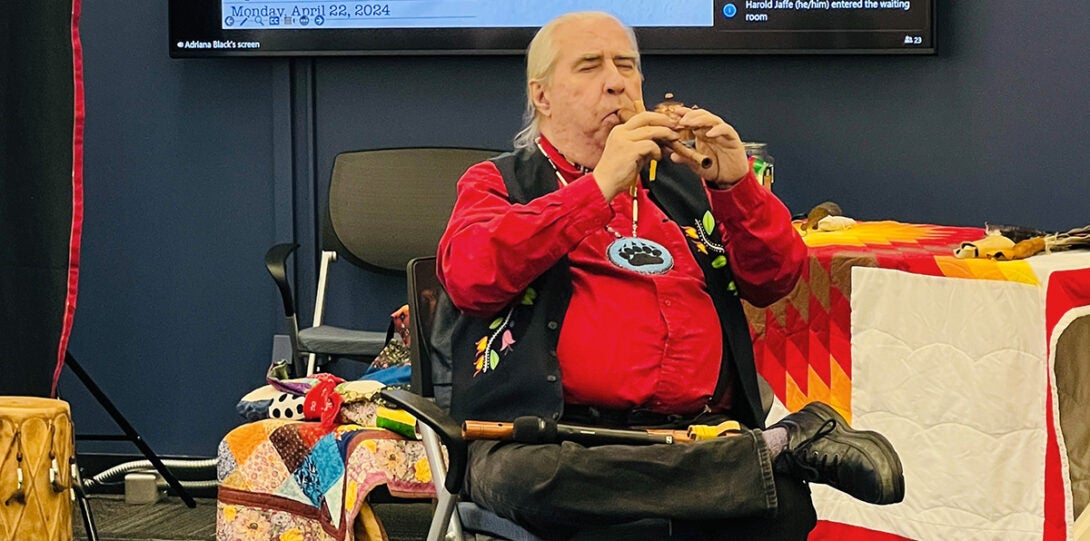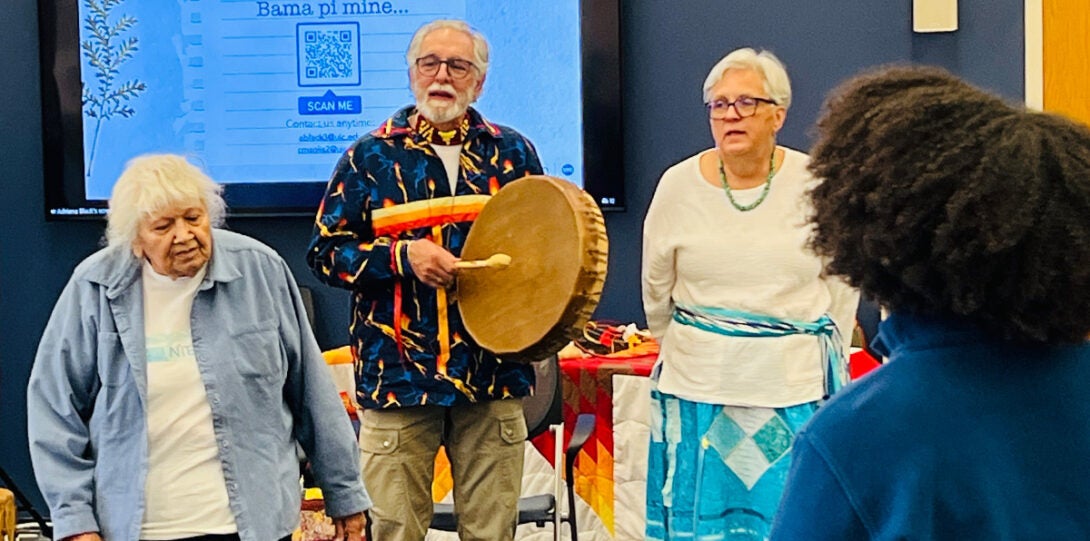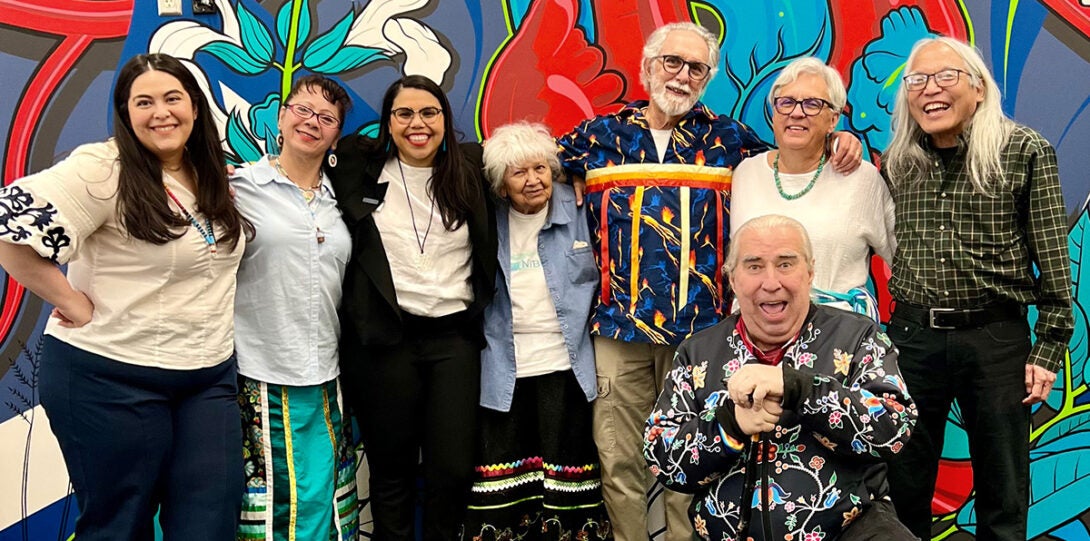Native American Elders Speak of Our Responsibility to Protect Natural Resources for Health
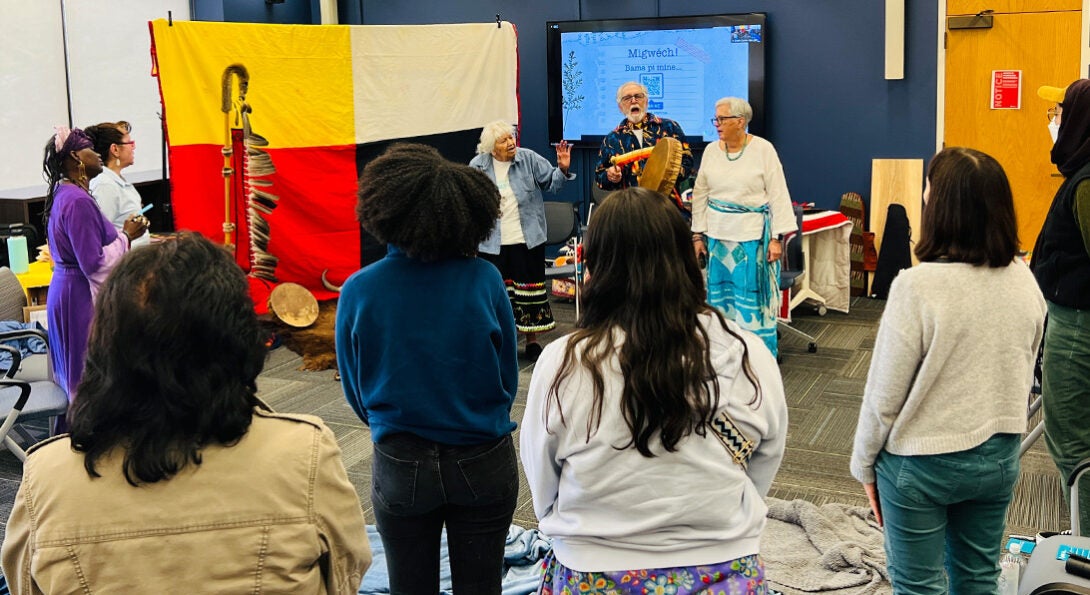
The Odehmenan Health Equity Center hosted an Earth Day event with the goal of connecting, learning and reflecting how we can protect our water and help restore our communities.
article text part 1 Heading link
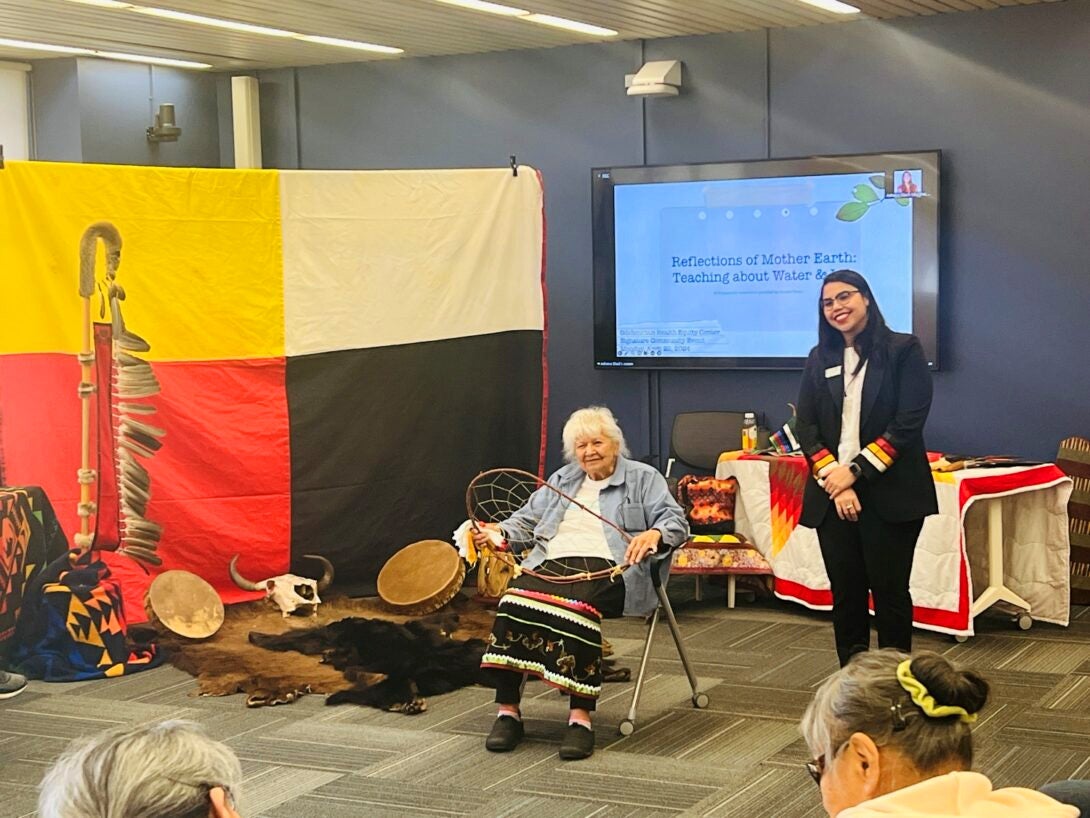
Since 1970, Earth Day has been an annual event observed on April 22 to raise awareness of environmental issues and promote the importance of protecting the earth and its resources. While it was first observed only in the United States, it’s now recognized across 193 countries globally.
This year, UIC’s newly-opened Odehmenan Health Equity Center (Odeh Center) held its inaugural Community Signature Event on April 22 in honor of Earth Day. This event, which contributed to the global day of eco-activism, launched a series that aims to leverage collaboration between UIC and community organizations to engage on health equity issues. The Odeh Center collaborated with Abiinooji-Aki Inc. (A.A.I.), a non-profit organization located on the Lac Courte Oreilles (LCO) Reservation in Wisconsin and the American Indian Health Service of Chicago, to host an event titled, “Reflections of Mother Earth–Teaching About Water & Life.” This program emphasized the importance of water and the responsibility to protect it by centering Native American cultural values and traditions.
The Odeh Center hosted speakers from Abiinooji-Aki Inc. (A.A.I.), with a mission to uplift Native American beliefs and practices to address social issues, including alcohol and other substance use, mental health, women’s health, and spiritual growth.
In the opening water and pipe ceremony at the Atkins Medicinal Plant Garden, Native American elders led the participants in song, prayer and smudging. It was special to hold this in this space as the four sacred herbal medicines (tobacco, sweetgrass, sage and cedar) have been present since they were all planted there prior to the Odeh Center’s launch last September. This ceremony was followed by several sessions featuring Native American presenters, as well as two authentic Native meals prepared by Jessica Pamonicutt (Menominee) of Ketapanen Kitchen, Chicago’s only Native American executive chef.
The first session was led by the founder and director of A.A.I., Maryellen Baker, otherwise known as Niyogizhicgookwe (Woman of Four Skies). She recounted the creation story of the Ojibwe people which explained how water, or nibi in Ojibwe, is a gift from the Great Spirit and a symbol of life itself. Baker highlighted the timelessness of water with the provocative notion that the water we drink today is the same water that was preserved by our ancestors. She urged participants to consider the tremendous responsibility we have to protect and preserve this resource as it cannot be manufactured or replicated on a whim, only recycled and at great cost.
Additional speakers Greg and Ann Hermann, also known as Ishkode Bine (Fire Bird) and Nibimanidoo’kwe (Water Spirit Woman) respectively, shared what they have learned along their journey of stepping into the responsibility of protecting water and emphasized the importance of living with humility and gratitude. They asserted that humans should understand that while individual efforts may seem small, we must each see ourselves as part of the natural biological systems that govern all living creatures.
Article text part 2 Heading link
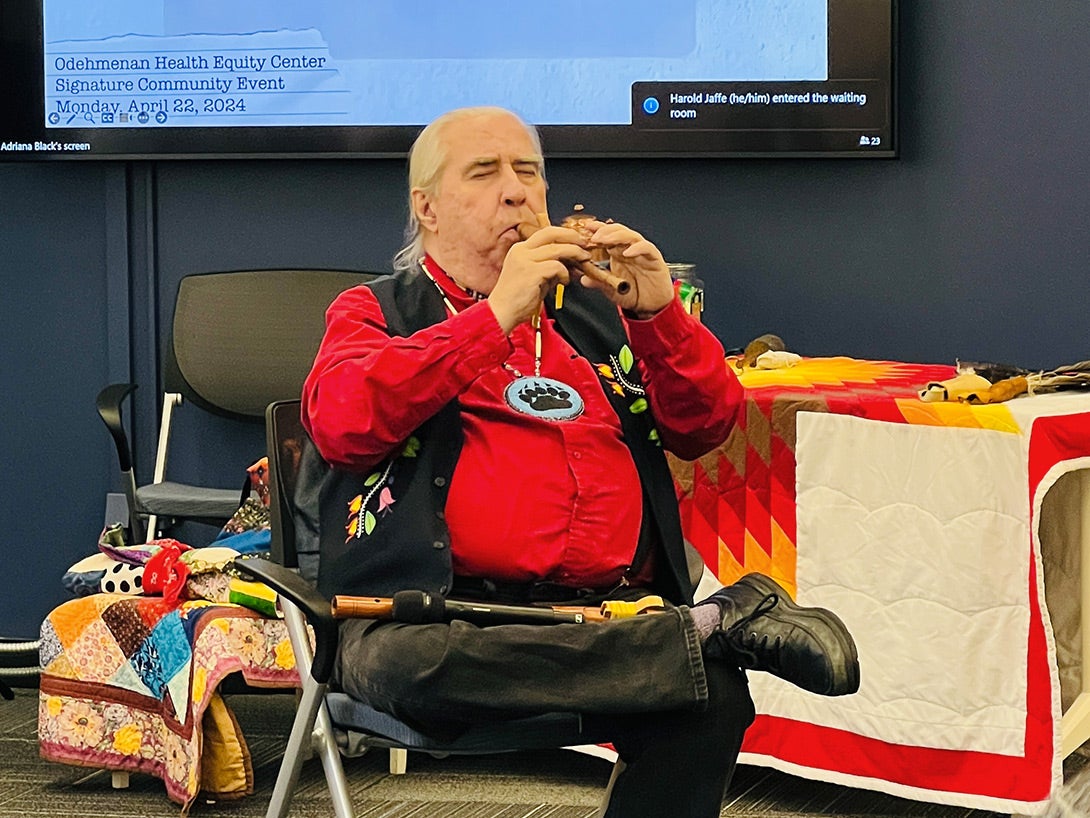
Native American music was also part of the program, with the talented musician William (Bill) Buchholtz, also called Pukinaage Mukwa (Conquering Bear), who performed with a pair of Native American flutes called bibugwen (Chippewa). Buchholtz played several pieces, both traditional, Native songs as well as original compositions like “A Mother’s Heart,” which he wrote about both his birth mother and adopted mother.
The final two speakers spoke on similar themes–Ojibwe teachings of life and culture. Stanley Oda, an award winning recording engineer/producer from Chicago, spoke to the audience about the seven grandfather teachings of the Ojibwe culture–respect, love, courage, honesty, wisdom, humility, and truth. Stanley outlined the meaning of each of the teachings to bring the audience to his final and most important point. He said all of these teachings will guide us in the goal of honoring water, yet more broadly to “honor all creation and treat all creation with respect.”
Stanley was followed by Karen Donahoe, also called Ogiimakwe (Leading Woman) who shared a presentation outlining her own upbringing on the Lac Courte Oreilles (LCO) Reservation in Wisconsin. She taught the group about Native history, particularly sharing the importance of living off the land. She shared how certain tribes have been categorized based on the resources and animals tied to each of these, but that all the tribes have been explicit about caring for and protecting water.
The event was a joyous and significant way for the campus to facilitate conversations with local Native American community leaders and organizers, while also serving as a call to action for attendees to take responsibility for stewarding the foundational gift of water. Water–like all other features of the planet–is not just a resource to dominate, as the speakers reiterated. Rather, when we live in gratitude for our environment, its resources, its protectors, we enable ourselves to be more responsible for how we impact the planet.
Video of the Program Heading link
00:00:00 – Welcome, opening remarks and Q&A with Dr Robert Barish
00:12:35 – Opening of Program and Introduction of Session I
00:16:29 – Water (Nibi):The Beginning of Life, presented by Maryellen Baker (Ojibwe)
01:10:27 – Introduction of Session II, Women and Water: Teaching, Singing and Healing
01:14:23 – Greg Hermann (Ojibwe)
01:40:18 – Ann Hermann (Mohawk)
01:51:16 – Bill Buchholtz (Algonquin/Metis)
02:14:31 – Stanley Oda
02:22:40 – Karen Donahoe (Ojibwe)
02:59:36 – Session III: Reflections of Mother Earth, all presenters
